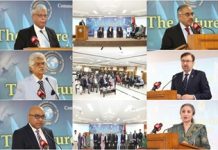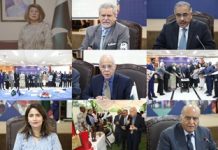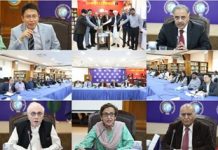Balochis and other ethnic groups have three issues with the Centre, which Islamabad can ignore only at the risk of national security. These are autonomy, empowerment, and adequate representation in the power structure of the country
Under the surface of artificial normalcy in Balochistan, there is a simmering nationalist sentiment that has the political capacity to boil over the brim. Frequent incidents of blowing up gas pipelines and bridges, and attacks against railways and governmental installations, confirm that certain sections of the Baloch community have taken up arms. It is the third time, some would argue the fourth time, in the history of Pakistan that a situation of confrontation between the Baloch nationalists and security forces is developing.
The military regime has acted with its usual arrogance and condescension towards the Baloch nationalist leaders, making sarcastic and disparaging references to them even in nationally televised speeches. The state-controlled media and government spokesmen have spared no time in launching venomous attacks against the Baloch leaders. They have been misrepresenting Balochi views and what they stand for.
The General and the political cronies who follow his line blindly without giving any honest thought to the long-term political consequences of his policy, have attacked the Baloch nationalist leaders on three countsthey are against development and modernisation; they want to perpetuate a traditional social order; and they have secessionist designs. Really, is this a true depiction of their struggle, political objectives and interests? No, it is not. This kind of official propaganda, vilifying ethnic nationalists, and questioning their patriotism produces rather the opposite effects. It misinforms the public and pushes the nationalists farther away from any point of reconciliation and integration.
Let us take the first accusation, of the anti-modern character of the Baloch nationalist leaders. I think it stems from prejudice more than objective reading of the situation in Balochistan. Baloch nationalists want schools, professional colleges, universities, roads, water projects and industrialisation. Why would they not want them? How many schools and colleges have they closed down and destroyed during the insurgency in 1970s or have attacked in the recent past? If schools in parts of Balochistan are without students and teachers, it is not a unique condition of this province. What about the ghost schools and colleges in Sindh and Punjab? This is a question of the declining capacity of the state to govern and provide effective social services to the people of Balochistan and other provinces. The state cannot shift the blame for its own failures to Baloch leaders and other segments of the society.
Second is the question of traditional social order in Balochistan, where a Sardar or tribal chief sits at the apex of the social hierarchy. Leaving aside a few urban areas of Pakistan, the rest of the provinces have social hierarchies of different types and categories. The only way to change the old social order is through economic development and modernisation. No leader, whatever his category, or a group of leaders can hold back the wheel of history. How fast this wheel turns depends on the foresight, understanding and commitment of those who control the state. Underdevelopment, poverty, social and economic inequality are issues that our state, like other states in world, has responsibility to handle. Social change is path-dependent, and the state has an obligation primarily to society to pave that path. It is unfair to blame the Baloch leaders for the persistence of social inequality.
Third, who is or isn’t a patriot is really a rhetorical question. Balochis, like other communities in the Pakistani federation, have no choice but to live in one union. The Pakistani state has had many failures in accommodating legitimate and constitutional rights of Balochistan and other provinces. Unfortunately, powerful sectors of Pakistani society have arrogated to themselves a right to present themselves as patriotic and those who oppose their kind of politics and domination as anti-state. Let us raise a counter rhetorical question: Is suspension and abrogation of Constitution and overthrow of elected regimes a patriotic act? And, are those who never stop praising military interventions doing any patriotic duty to this nation? Time and history are tough judges, and they come up with very harsh judgements on who is patriotic.
All military interventions in the democratic politics of Pakistan or in other states have tended to centralise power, disorient participatory politics and cause decline of representative institutions. And they have left bitter legacies of political fragmentation and alienation of minority ethnic groups. In fact, in ethnically diverse societies, democracy and federalism are the only effective political tools to build a state and nation. None of our military and civilian leaders, present or past, have understood these time-tested ways of integrating diverse ethnic groups into a common nationhood.
Balochis and other ethnic groups have three issues with the Centre, which Islamabad can ignore only at the risk of national security. These are autonomy, empowerment, and adequate representation in the power structure of the country. There is fresh talk of transferring some of the subjects in the concurrent list to the provinces. The question of autonomy requires a change in the mindset of our military rulers.
In federalism, provinces are entitled to greater authority, power and resources for two reasons. First, they retain a greater part of sovereignty while entering the union. Second, provinces are closer to the people and therefore more effective than federal governments in resolving their problems. The time and money federal government has spent on establishing and promoting district-based devolution should have been spent on devolution of power to the provinces. Our current system is overly centralised. It is federal in name only, not in essence, if we look at the theory or practice of federalism in other countries.
The second issue is the issue of empowerment of provinces. Empowerment is about entrusting the federating units, Balochistan and its Baloch leaders in particular, with authority to take decisions on development, infrastructural projects, investment and industrialisation. Baloch leaders have genuine grievances about having been ignored in vital development projects. Therefore they don’t feel any sense of ownership, which they should have been given from the conception of a project to its implementation. More importantly, there is a real question of who benefits the most out of these projects, the local people and communities or the outsiders.
Thirdly, the Balochis are not truly represented in the power structure of Pakistan. It cannot be done through cooptation, which the military regime has done. The only honourable and accepted form of representation is through free and fair elections. The 2002 general elections following a widely rigged referendum has not earned the president a clean and fair image, here or in the eyes of outside world. Manipulation of electoral process is the ultimate insult of popular sovereignty and humiliation of democratic process. Deceitful and fraudulent elections produce the desired results for the rulers, but strain national unity and trust. The nationalist Baloch leaders attribute their under-representation in assemblies more to manipulation than to the erosion of their popular support base.
Unfortunately, the military regime and its political associates are not sensitive to the question of ethnic diversity. Structurally they are unable to construct an inclusive, pluralistic and accommodating state structure. Returning back to democracy and federalism will provide Pakistan the capacity to weather any political storm. Let there be no illusion that military regimes unite; they divide, fragment and cause polarisation, and in the end leave the country in a greater mess than they found it in.
The author is a professor of Political Science at the Lahore University of Management Sciences.












